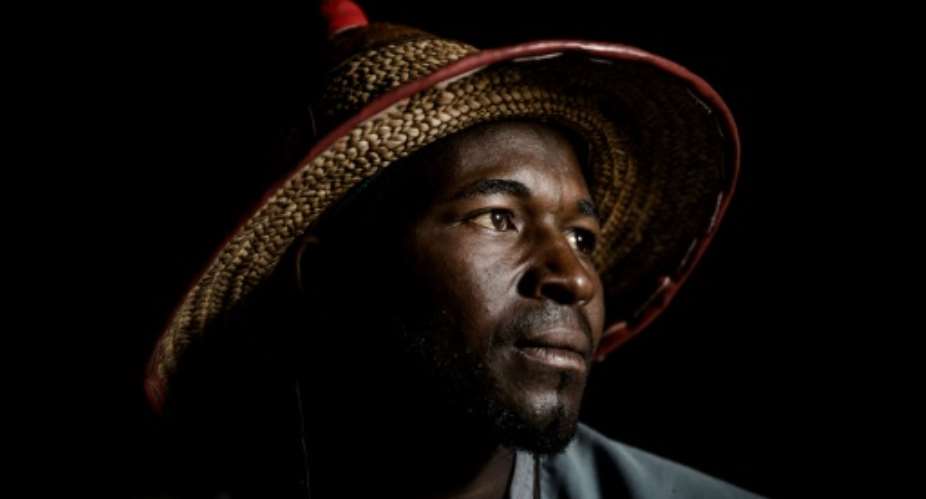They are one of the last great nomadic peoples of the planet, a community of some 35 million people scattered across 15 countries in West Africa, from the dusty Sahel down to the lush rainforests.
 The Agege cattle market in Lagos. Nomadic herders provide most of the beef consumed in Nigeria -- demand is rocketing, offering both reward and risk for the Fulani. By Florian PLAUCHEUR (AFP)
The Agege cattle market in Lagos. Nomadic herders provide most of the beef consumed in Nigeria -- demand is rocketing, offering both reward and risk for the Fulani. By Florian PLAUCHEUR (AFP)
They are the Fulani: Pastoral herders who migrate with their cattle, following the pendulum swing of the seasons.
 The Fulani have been nomadic herders beyond recorded time. By Luis TATO (AFP)
The Fulani have been nomadic herders beyond recorded time. By Luis TATO (AFP)
A few years ago, the Fulani, also called the Peul, pursued their ancient lifestyle largely unnoticed by the rest of the world.
 Wrecked and burned homes at Angwan Aku. The conflict in Nigeria's Middle Belt has been sharpened by religion -- Fulani herders are mainly Muslim and the sedentary farmers are predominantly Christian. By Florian PLAUCHEUR (AFP)
Wrecked and burned homes at Angwan Aku. The conflict in Nigeria's Middle Belt has been sharpened by religion -- Fulani herders are mainly Muslim and the sedentary farmers are predominantly Christian. By Florian PLAUCHEUR (AFP)
All that has changed. Old conflicts have flared anew between herders and sedentary farmers in Nigeria, Burkina Faso, Mali and Niger.
 Monica Gabriel, 48, was shot and hacked by machetes in a suspected Fulani attack on her village. By Luis TATO (AFP)
Monica Gabriel, 48, was shot and hacked by machetes in a suspected Fulani attack on her village. By Luis TATO (AFP)
Thousands of people have died in a cycle of violence that jihadists have manipulated and inflamed. The economic impact is in the tens of billions of dollars.
Governance in many of these afflicted regions is breaking down, turning swathes of land into vast zones of lawlessness.
 Hands on: Students queue before lessons at Wuro Fulbe Nomadic School in the Kacha Grazing Reserve, a zone set aside for pastoralists. Classrooms are almost bare of equipment and chronically overcrowded. By Luis TATO (AFP)
Hands on: Students queue before lessons at Wuro Fulbe Nomadic School in the Kacha Grazing Reserve, a zone set aside for pastoralists. Classrooms are almost bare of equipment and chronically overcrowded. By Luis TATO (AFP)
The clashes have occurred on West Africa's historic Muslim-Christian faultline.
Yet the conflict goes beyond religion, bringing into focus issues that are crucially relevant for the wider world.
 Mohammed Abubakar Bambado, the Sarkin Fulani of Lagos. Bambado is a 49-year-old businessman with a port handling firm in Nigeria's economic metropolis. He also has the title of the city's Fulani king, dispensing advice and help to his subjects. By Luis TATO (AFP)
Mohammed Abubakar Bambado, the Sarkin Fulani of Lagos. Bambado is a 49-year-old businessman with a port handling firm in Nigeria's economic metropolis. He also has the title of the city's Fulani king, dispensing advice and help to his subjects. By Luis TATO (AFP)
They include the roles of population growth and climate change in fuelling disputes over land use, and the part that colonial-legacy divisions play in stoking violence.
 A pilgrim prays before the tomb of Usman Dan Fodio, revered by the Fulani as a holy man. By Luis TATO (AFP)
A pilgrim prays before the tomb of Usman Dan Fodio, revered by the Fulani as a holy man. By Luis TATO (AFP)
The crisis has also turned a sudden, stark spotlight on Fulanis and their gruelling but timeless way of living.
Today, despite their millennia of history, the Fulani people find themselves assailed by stigma, political pressures and a shifting economy, their traditions so often out of kilter with the demands of modern societies.
 The Fulani's timeless practice of pastoralism finds itself out of kilter with the 21st century. By Luis TATO (AFP)
The Fulani's timeless practice of pastoralism finds itself out of kilter with the 21st century. By Luis TATO (AFP)
Many Fulani, struggling to adapt, say their people have no choice but to fight to survive -- or otherwise fade away.
-----------------------
+ These photos are part of an exceptional AFP investigation into the Fulani, a four-part package combining text, photos, graphics and video
afp





 We’ll protect state wealth from opaque deals – Prof Jane Naana
We’ll protect state wealth from opaque deals – Prof Jane Naana
 Mauritania president says running for second term in June polls
Mauritania president says running for second term in June polls
 I won't ever say I was a mere driver’s mate' — Prof. Opoku-Agyemang
I won't ever say I was a mere driver’s mate' — Prof. Opoku-Agyemang
 2024 polls: 'EC struggling to defend credibility'— Prof. Opoku-Agyemang
2024 polls: 'EC struggling to defend credibility'— Prof. Opoku-Agyemang
 Akufo-Addo gov't's 'greed, unbridled arrogance, unrestrained impunity, sheer dis...
Akufo-Addo gov't's 'greed, unbridled arrogance, unrestrained impunity, sheer dis...
 Election 2024: Ghana needs an urgent reset, a leadership that is inspiring – Ma...
Election 2024: Ghana needs an urgent reset, a leadership that is inspiring – Ma...
 Partner NDC to rollout a future of limitless prospects – Prof Jane Naana Opoku-A...
Partner NDC to rollout a future of limitless prospects – Prof Jane Naana Opoku-A...
 NPP will remain in gov’t till Jesus comes — Diana Asamoah
NPP will remain in gov’t till Jesus comes — Diana Asamoah
 Sunyani Technical University demands apology from former SRC president over sex-...
Sunyani Technical University demands apology from former SRC president over sex-...
 'Dumsor' was resolved by Mahama but ‘incompetent' Akufo-Addo has destroyed the g...
'Dumsor' was resolved by Mahama but ‘incompetent' Akufo-Addo has destroyed the g...
